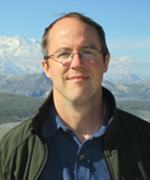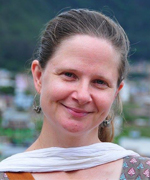Who Gets to Be a Translator? Qualifications and Questions of Authority
An open discussion about qualifications and questions of authority related to translating and being a translator. Who decides what to translate? How and why? How do translator’s learn from each other? What qualities seem most important to cultivate as a translator? What are the qualifications of a translator? What trainings were the most important in your development as a translator? Or what was lacking? How does one measure the qualifications of a translator and how does one improve? How do you take ownership and responsibility for your work?
Event: TT Conference 2017 – Discussion Session
Date: June 1, 2017 – 2:30 pm
Facilitators: Douglas Duckworth, Lara Braitstein
Topics: Translator, Translator's Authority, Translator's Qualifications

Douglas Duckworth
Temple University
Douglas Duckworth is Assistant Professor in the Department of Religion at Temple University. He is the author of Mipam on Buddha-Nature: The Ground of the Nyingma Tradition (SUNY, 2008) and Jamgön Mipam: His Life and Teachings (Shambhala, 2011). He also introduced and translated Distinguishing the Views and Philosophies: Illuminating Emptiness in a Twentieth-Century Tibetan Buddhist Classic by Bötrül (SUNY, 2011).

Lara Braistein
McGill University
Lara Braitstein is Associate Professor of Indian and Tibetan Buddhism at McGill University. She has also taught at the Karmapa International Buddhist Institute (K.I.B.I.) in New Delhi, and the Rangjung Yeshe Institute in Kathmandu. She teaches Mahayana & Vajrayana Buddhist Philosophy, Buddhist Hagiography, and Tibetan/Himalayan Buddhist literature and historiography. She translated the 14th Shamarpa’s The Path to Awakening, and is the author of The Adamantine Songs: Study, Translation, and Tibetan Critical Edition, a study of Saraha’s Mahamudra poems. Her recent research is a study dedicated to untangling the history and representation of the 10th Shamarpa Chodrup Gyatso.
